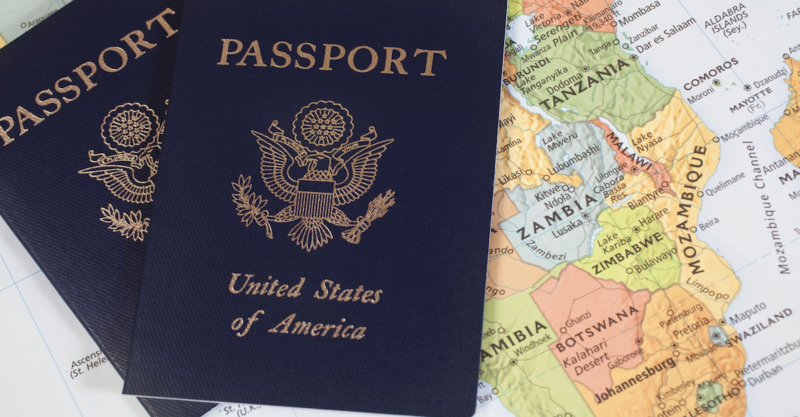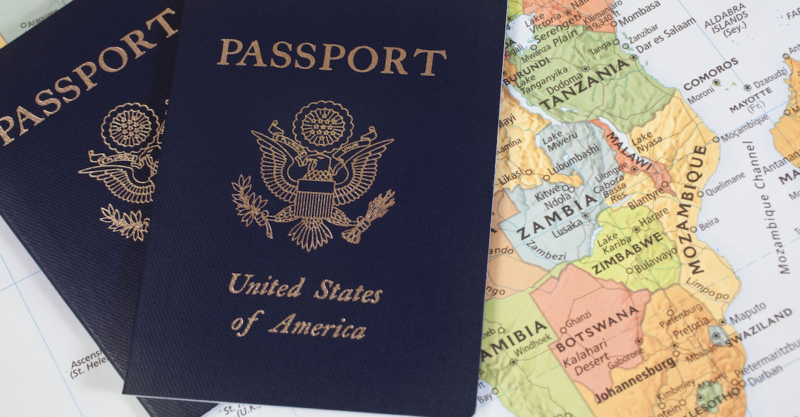Billionaire Peter Thiel is acquiring his fourth passport.
Born in Germany, Thiel moved with his family to the US and became a US citizen as a child.
More recently, he acquired citizenship in New Zealand after investing and donating heavily to charities in the country.
Now, Thiel is obtaining a passport from the European Union island-nation of Malta through its citizenship by investment (CBI) program.
Between the donation to the government, and an investment in property for example, it costs around one million euros.
This has led to the typical media chorus that obtaining an additional citizenship is only for billionaires. But that view is totally wrong.
You absolutely do not have to be super-rich to have a second passport.
Sure, Peter Thiel has landed a couple of the most expensive citizenships out there. But there are also CBI programs in the Caribbean that are a fraction of the cost as the ones that Thiel received.
It is possible to receive a passport through St. Lucia’s CBI program, for example, for a little over $100,000.
That’s still pretty pricey for many.
But other methods of obtaining a second passport cost you time instead of money — in some cases, as little as two years.
Naturalization allows you to become a citizen by spending a certain amount of time living in, or as a resident of a foreign country.
So which countries offer the quickest, fastest way to citizenship through naturalization?
Foreigners become eligible to naturalize in Argentina, Peru, and the Dominican Republic after living there for just two years.
Argentine passport received a solid B+ in our passport ranking index, as it grants visa-free access to 147 countries around the globe.
However, Argentina’s nationality law is a bit restrictive: once you obtain Argentine citizenship, you may have to visit the country every two years in order to maintain it.
Plus, naturalized citizens can only pass their Argentine citizenship on to their children if the children are born in Argentina. (Although, according to the local legal providers we’ve consulted with, not all of these provisions are actually enforced.)
Also, keep in mind that while technically Argentina does allow foreign residents to apply for naturalization after two years, the actual application to become a citizen can take an additional two years.
Peru also allows residents to naturalize after two years. You will, however, need to know Spanish and pass a Peruvian history test in order to become a citizen.
The financial requirements to naturalize are very low; typically an applicant will need to prove income of about $12,000 per year in order to be approved for naturalization.
We rank a Peruvian passport as a solid ‘B’ with visa-free access to 131 countries.
Then there’s Dominican Republic, which allows you to apply for citizenship after two years of residency.
And residency is very straightforward to obtain. Foreign retirees are eligible for residency if they can demonstrate $1,500 in monthly retirement income. Social Security qualifies.
There is also a “rentista” visa which requires proving that you have had a stable monthly passive income (royalties, dividends, etc.) of at least $2,000 for the last five years.
The Dominican Republic is cheap. For a single person, a comfortable life would cost around $1,700 per month (and around $3,600 for a family of four).
But the passport is not the best quality. Ranked 113 out of 198 countries, with visa-free access to only 70, we rate it only a C-.
Honduras allows naturalization after three years of residency.
But this timeline drops down to only one year for citizens by birth of other Central American countries, and two years for citizens by birth of Spain, Brazil, and Latin American countries.
You will need to know Spanish and pass a national history test in order to become a citizen of Honduras. And your children born outside of Honduras will not inherit the citizenship.
Technically you will need to renounce other citizenships… which is a big deal breaker.
BUT, in practice, the renunciation requirement is not enforced, and meant as a symbolic gesture only.
And despite being impoverished and dangerous, Honduras actually has a decent passport. We give it a B rating with visa-free access to 114 countries.
Nicaragua is less expensive than its southern neighbor Costa Rica, and safer than its northern neighbor Honduras.
You can apply for citizenship in the country after four years of permanent residency, or two years for citizens by birth of Spain or other Central American countries.
People who naturalize from anywhere else are supposed to renounce their other citizenships, but once again, no proof is required and this remains largely symbolic.
Nicaragua has a B- passport, and you can pass on the citizenship to children born outside of the country.
Brazil allows you to apply for citizenship after four years as a permanent resident.
You can gain permanent residency immediately (skipping temporary residency) through an investor visa, or if you have a baby in Brazil.
In such case, the baby automatically becomes a citizen, you can immediately claim permanent residency, and you only have to wait one year before applying for naturalization.
Citizens by birth of other Portuguese speaking countries also cut the naturalization timeline down to just one year of residency — that includes Angola, Cabo Verde, Guinea-Bissau, Equatorial Guinea, Mozambique, Portugal, Sao Tome and Principe, and Timor-Leste.
Brazil’s passport is a solid B+, ranked 53rd globally with visa-free access to 151 countries.
It’s also possible to obtain citizenship in Mexico after just two years of residency if you have a baby in the country. A baby born in Mexico will automatically be a Mexican citizenship.
What’s really nice is that both parents, plus both sets of grandparents, are eligible for Mexican permanent residency. The parents will be eligible to apply for Mexican citizenship after two years. But you’ll have to have spent at least 18 out of 24 months in order to qualify.
In addition to naturalization and citizenship by investment, there is also citizenship through ancestry.
Everyone should check to see if they are part of the lucky bloodline club — generally the cheapest and easiest way to obtain a second passport. Over a dozen countries grant citizenship to the descendants of former citizens.
And finally, certain people are in a “flexible” position to obtain citizenship through birth or marriage, for example.
In many of the countries mentioned here, marriage can significantly reduce the time required to naturalize.
Or, as we mentioned, if you already planned to have a baby, it might make sense to consider giving birth in a Jus Soli country that grants citizenship to anyone born on its soil. Often that fast tracks the parents to permanent residency and citizenship.
Having a second citizenship is an important insurance policy which means no single government can control where you live, work, and travel.
To help you more easily browse all the possibilities the world offers, we created the Global Explorer map.
Have fun visualizing where countries fall when it comes to crime, climate, type of taxation, and of course, passport quality.

Source: The Daily Bell Rephrased By: InfoArmed

